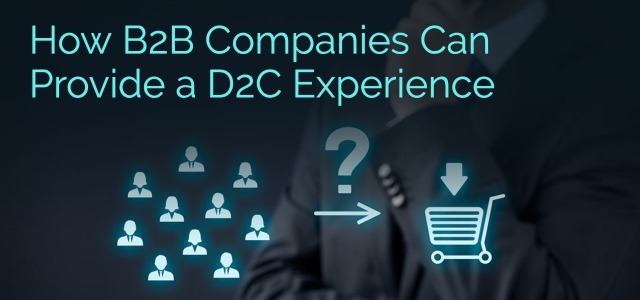How B2B Companies Can Provide a D2C Experience
Estimated reading time: 4 minutes
In today’s ever-changing digital age, customers are more empowered than ever before. They have access to a wealth of information and can make informed decisions about their purchases. This shift in consumer behavior has led to the rise of Direct-to-Consumer (D2C) companies that sell directly to consumers without involving any middlemen. While D2C companies have been successful in many industries, they have yet to make significant inroads in the B2B space. However, with changing customer expectations and increased competition, B2B companies are beginning to realize the need for a D2C experience. In this article, we will explore how B2B companies can provide a D2C experience.
Balancing B2B and D2C Strategies
Before we jump into how B2B companies can provide a D2C experience, it’s essential to understand what it means. A D2C experience is all about providing a seamless customer experience from discovery through purchase and beyond. It involves removing barriers between the customer and the product while also delivering personalized engagement at every touchpoint.
While this may seem straightforward, implementing a D2C strategy isn’t as simple as it sounds for B2B companies. Unlike D2C businesses that deal with individual customers who often make quick decisions based on emotions or impulse purchases, B2B clients are often representatives of an organization that follows strict purchasing procedures.
Moreover, many B2B sellers rely on distributors for sales and distribution channels. These distributors often represent multiple brands and might not be as invested in promoting one particular brand over another.
To implement a successful D2C strategy, a balance needs to be struck between traditional B2B sales channels and new direct-to-consumer models that offer customers greater control over their purchasing decisions.
Creating Unique Product Experiences
One of the key ways B2B’s can provide successful D2C experiences is by creating unique product experiences. The products need to cater to specific market segments rather than being generic enough to appeal to everyone.
For instance, if your business sells software solutions targeting small businesses, your website should highlight features catered towards those specific demographics – such as pricing plans suited towards small and midsize business (SMB) budgets or integrations with commonly used tools such as Salesforce CRM software.
Personalization Through Data
Personalization is crucial when creating engaging experiences for customers; incorporating data-driven insights adds an extra layer of personalization that can help businesses stand out from their competitors.
For instance, offering personalized recommendations based on past purchase history or search queries enhances customer experiences by catering directly to their preferences rather than relying on generic marketing tactics.
Efficient Order Management
Providing customers with efficient order management capabilities is another critical aspect of delivering an effective e-commerce experience that aligns with the principles of direct-to-consumer marketing. Customers expect real-time updates on order status so they can track progress at every stage of the buying journey.
Therefore, businesses must invest in robust order management solutions that can handle complex orders efficiently while addressing issues such as cancellations or refunds quickly.
Enhanced Customer Support
Customer support plays a crucial role in delivering satisfactory post-purchase experiences. Businesses must invest in dedicated support teams equipped with relevant training so they can address customer concerns promptly while offering resolutions aligned with company policies.
Moreover, enabling self-service options such as chatbots or knowledge bases empowers customers so they don’t always have to rely on contacting support representatives.
Summary
Direct-to-consumer strategies have become increasingly popular, especially among retailers because they create unique opportunities for building relationships with customers through customized offerings and streamlined interfaces. The same principles apply when it comes to providing great buyer experiences within the B2B space: Personalization/segmentation through data analysis-backed insights paired with efficient ordering processes and reliable post-sales support services will help differentiate you from competitors who lack these qualities.
Ad Vic’s dedicated B2B Commerce team is ready to apply their knowledge and passion to your challenges. Whether you are migrating from a legacy eCommerce solution, just starting to dip your toe into the B2B eCommerce world, or want to explore direct-to-consumer options discussed in this article, our team has the skills and expertise needed to quickly devise a technology roadmap so you can drive new revenue. Reach out and talk to us today!
Related Resources:
B2B Customer Success Story
B2B Commerce Accelerator
B2B Marketing Tips You Have Not Thought Of
Subscribe to the AdVic Salesforce Blog on Feedly:



